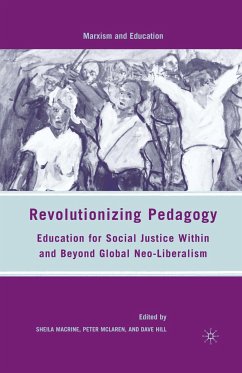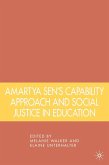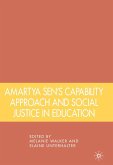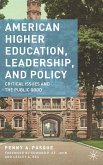This book brings together a group of top international scholars who consider Pedagogy of Critique, Revolutionary Pedagogy and Radical Critical Pedagogy as forms of praxis to examine the paradoxical roles of schooling in reproducing and legitimizing large-scale structural inequalities.
"An extraordinary emancipatory work: bravely negotiating the globalized toxic ruins of neo-liberalism. This is a liberatory project that embraces building a more just and democratic social world, transforming the ashes of oppressive pedagogical practices into a universe of critical and creative revolutionary possibility." - Karen Anijar, Professor Emeritus, Arizona State University
"This volume provides both a much-needed political and economic critique of the dominant neoliberal reforms in the economy and education, and a theoretical and pedagogical path towards a democratic society and schools. I commend the contributors for their intellectual and political courage." - David Hursh, University of Rochester, and author of High-Stakes Testing and the Decline of Teaching and Learning
"Revolutionizing Pedagogy: Education for Social Justice Within and Beyond Global Neoliberalism is an edited volume about education. But it isn?t about education in the sense of learning how to fit in with the existing social order. Rather, the ten essayists whose works are featured in this edited volume wish to bring our institutions more in line with what we profess to believe, and in doing so create educational systems which might actually work toward solving social problems." - Education Review
"This volume provides both a much-needed political and economic critique of the dominant neoliberal reforms in the economy and education, and a theoretical and pedagogical path towards a democratic society and schools. I commend the contributors for their intellectual and political courage." - David Hursh, University of Rochester, and author of High-Stakes Testing and the Decline of Teaching and Learning
"Revolutionizing Pedagogy: Education for Social Justice Within and Beyond Global Neoliberalism is an edited volume about education. But it isn?t about education in the sense of learning how to fit in with the existing social order. Rather, the ten essayists whose works are featured in this edited volume wish to bring our institutions more in line with what we profess to believe, and in doing so create educational systems which might actually work toward solving social problems." - Education Review








